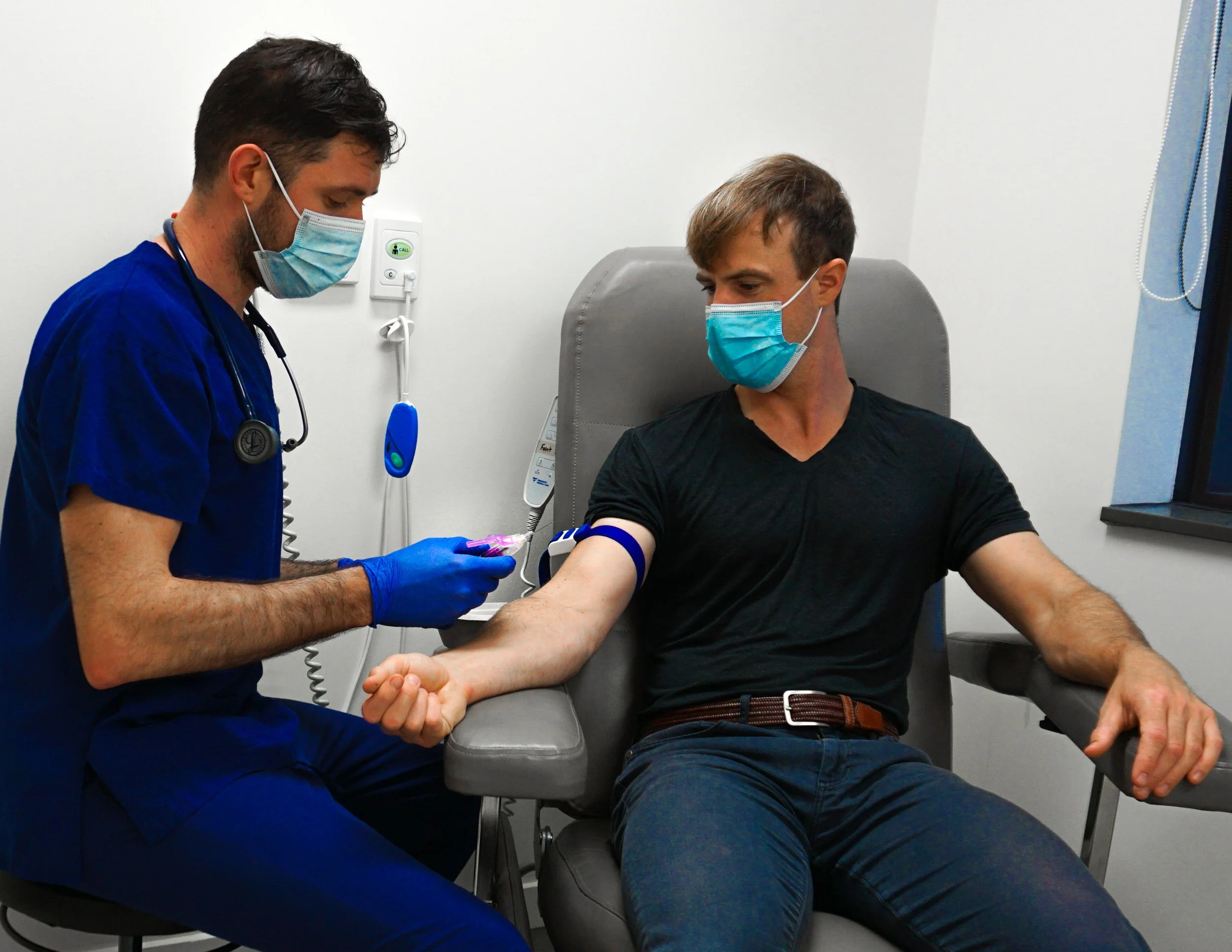
Blood tests for heart disease
Tests for people with symptoms or simply to find out whether you are at risk of cardiac conditions such as angina, heart attack and arrhythmia.
Lipid profile
The lipid profile is a standard set of tests that measure cholesterol levels in the blood. This information is used to detect inherited disorders of lipid metabolism and to guide treatment. Types of cholesterol measured include total cholesterol, low density lipoprotein (LDL), high density lipoprotein (HDL) and triglycerides.
HbA1c and glucose
Blood glucose levels are elevated in diabetes. Testing glucose levels is done after a prolonged fast. The HbA1c test measures the amount of glucose stuck to the outside of red blood cells giving an indirect measure of blood glucose levels over the last 3 months.
Thyroid function
Underactive and overactive thyroid conditions increase the risk of heart disease. Measuring thyroid function is an important part of understanding your risk of heart disease. These tests include thyroid stimulating hormone (TSH) and measuring the levels of hormone produce by the thyroid, called thyroxine (T4) and T3.
Cortisol
Cortisol is a hormone produced by the adrenal glands and is important in blood pressure regulation. Too much cortisol can cause raised blood pressure (hypertension) whereas too little can lead to low blood pressure and dizziness. If levels of cortisol are low then a SynACTHen test may be carried out to measure the amount of cortisol the adrenals can produce with chemical stimulation.
Kidney function
Kidney disease increases the risk of heart disease so knowing your kidney function is important to understand your cardiac risk. Kidney function is also measured to see the effect that high blood pressure (hypertension) and diabetes are having on the organs of the body. Kidney function is measured with the Creatinine test, which may be expressed as an estimated glomerular filtration rate (eGFR).
Adrenalines and
Metadrenalines
If these hormones are overproduced by the adrenal glands they can lead to a rapid heart beat and raised blood pressure. This condition is rare, but if no other cause is found for hypertension then your doctor may recommend checking adrenaline levels.
Vitamin D
Low vitamin D levels are extremely common in the UK. Having low vitamin D can lead to raised risk of heart disease, high blood pressure, high cholesterol, diabetes and heart rhythm disorders such as palpitations and atrial fibrillation.

